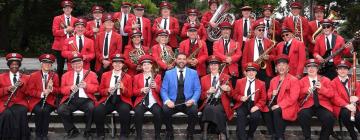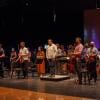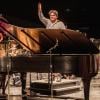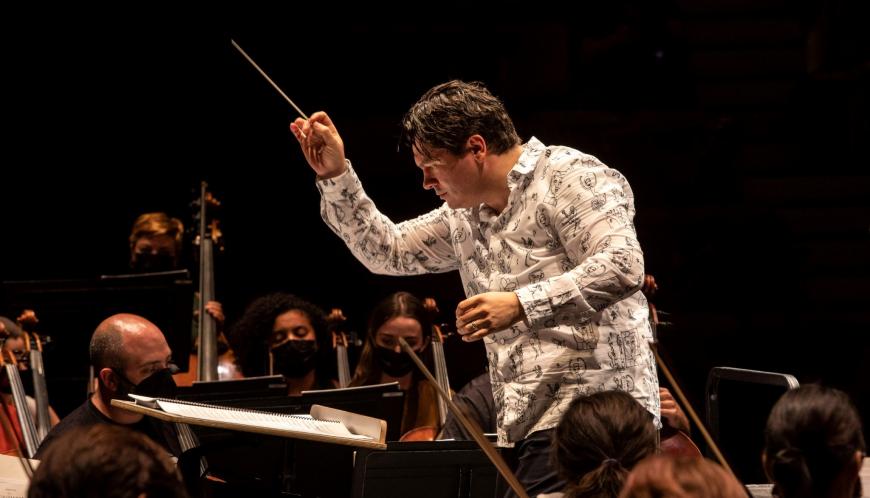
One of the oldest and biggest new-music festivals, the Cabrillo Festival of Contemporary Music, is heading into its 61st season, July 30 – Aug. 13, with panache.
Music Director Cristian Măcelaru says the festival is all about “music of our time, for our time,” offering composers a haven to present contemporary music that “speaks to the world around us, bringing together a community of artists and audiences to experience the creative process.”
Season highlights include two world-premiere commissions, one U.S. premiere, nine West Coast premieres, a tribute to Cabrillo Festival co-founder Robert Hughes (who died last year), and a celebration of longtime Executive Director Ellen Primack, who steps down from her role after 33 seasons. And of course, there’s the usual healthy lineup of composers-in-residence and guest artists in the mix.
Măcelaru says the festival is “thrilled to present a new season, one that brings together longtime collaborators and brand-new voices to our audiences. While the percussion instruments receive a focus this year, we also continue our mission to bring into focus current social themes, allowing music of our time to speak of our times.”
Carlos Simon, who has participated in the Cabrillo Conductors/Composers Workshop before and returns this year with the West Coast premiere of his work Tales: A Folklore Symphony, says, “The festival was absolutely transformative for me as a young, aspiring composer. I learned so much about the business and cultivation of new contemporary music. It was such a nurturing environment for my craft, and I draw from that experience consistently. I’m delighted to be returning this year.”
In addition to evening concerts, the festival continues its tradition of hosting open rehearsals, “Meet the Composers” and other talks, and the Conductors/Composers Workshop, a professional training program focused on the creation, performance, and promotion of new music.
Măcelaru opens the season with an evening of West Coast premieres by Sebastian Currier, Jennifer Higdon, Sarah Kirkland Snider, and Bora Yoon. Currier’s Track 8 draws inspiration from and parallels Beethoven’s Eighth Symphony in what the composer calls a “Beethoven remix.”
As part of this season’s emphasis on percussion, soloists Matthew Strauss and Svet Stoyanov take center stage in the West Coast premiere of Duo Duel, co-commissioned by the festival. Dubbed “limb-defying,” Jennifer Higdon’s work showcases the full spectrum of percussion’s expressive power. Higdon composed the work specifically for Stoyanov and Strauss, two artists the composer praised for their “extraordinary technique and musicality.”
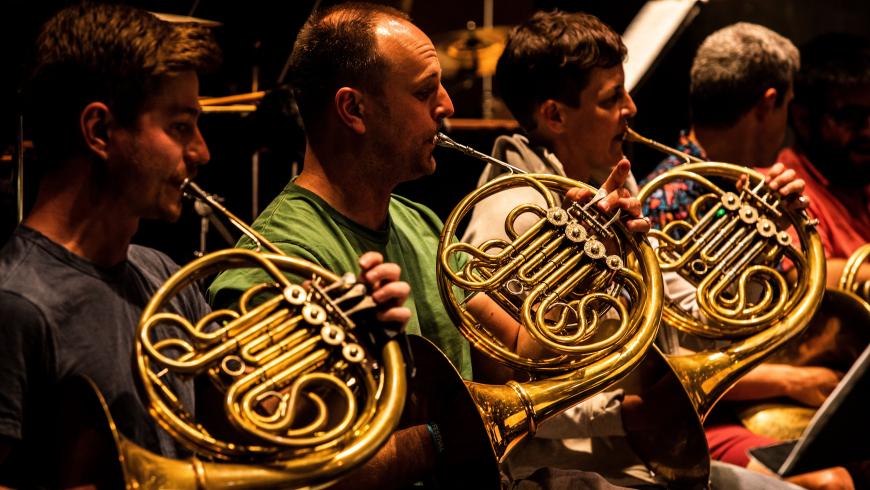
Korean American composer, vocalist, and sound artist Yoon is represented with The Wind of Two Koreas, a piece inspired by Igor Stravinsky’s early orchestral works imbued with Russian folklore.
On Aug. 5, the program includes Peter Shin’s Relapse, Simon’s Tales: A Folklore Symphony, Andrea Reinkemeyer’s Water Sings Fire, and Tan Dun’s The Tears of Nature (with Beibei Wang on percussion).
Of Tan Dun’s work, Măcelaru says, “I remember conducting this piece for the first time a few years ago, and I was completely blown away by the mastery with which Tan Dun is able to use just two rocks to create this beautiful musical line.
“It’s also a deeply moving personal work that creates a focus on the tragedy at the nuclear power plant in Fukushima. And the combination of the meaning behind [the work], plus the mastery of the writing from Tan Dun, makes conducting this composition a true highlight of my career.”
Kronos Quartet once again appears at the festival, David Harrington and John Sherba (violins), Hank Dutt (viola), and Paul Wiancko (cello) performing on Aug. 6.
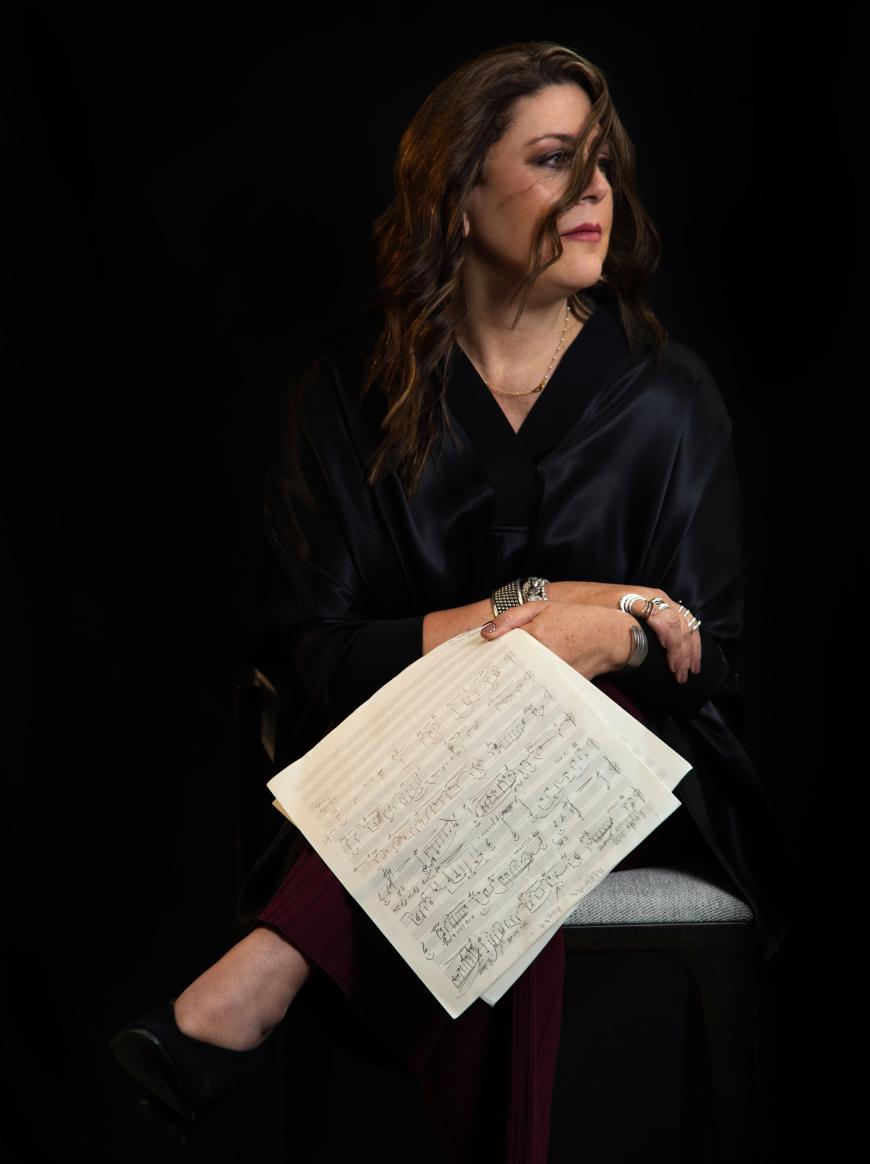
The second weekend of the festival begins on Aug. 12 with works by Gabriela Ortiz, Julia Wolfe, Robert Hughes, Gabriella Smith, and Olga Neuwirth.
Ortiz, a prominent Mexican composer, writes music that synthesizes high art, folk music, and jazz. Măcelaru leads the festival’s orchestra in Ortiz’s Tzam, a work that pays tribute to the composer’s father, her composition teacher, and her faculty colleague — three important figures she lost in succession. Tzam is a departure from her usual style and features different atmospheres with important harmonies and tone colors. The title means “dialogue” in a nearly extinct dialect from Mexico, and Ortiz notes that the piece establishes a dialogue not only with her influences but also with herself.
Hughes co-founded the Cabrillo Festival more than six decades ago and died in August 2022. The festival will feature his Uutiqtut, one of several of Hughes’s works inspired by the Arctic region’s nature, people, and music. “Uutiqtut” is an Inuit term that means “movement.”
The festival ends on Aug. 13 with a concert of works by Dan Caputo, Xavier Foley, Hughes, Kevin Puts, and Anna Clyne.
Double bassist Foley composes for his instrument, which is rarely given a solo spot. The recipient of an Avery Fisher Career Grant, Foley was co-commissioned by the festival and the Mahler Foundation for his Double Concerto for Violin and Bass, to feature the composer on double bass and Eunice Kim on violin.
The posthumous tribute to Hughes continues with his Estampie, a work influenced by his relationship with Lou Harrison — the composer who, along with Hughes, played an important role in shaping the beginnings of the Cabrillo Festival. As SF Classical Voice reported before, “In the 1960s, Lou Harrison pupil Robert Hughes organized new-music concerts in and around Aptos’s Sticky Wicket Cafe, and music lovers from the small town kept coming.”
Pulitzer Prize-winning composer Puts was inspired by Amanda Gorman’s poem “Hymn for the Hurting” when composing his Concerto for Orchestra, a work co-commissioned by the festival and the St. Louis Symphony. Puts’s Concerto for Orchestra spotlights the virtuosity of each orchestra section and the principal players.
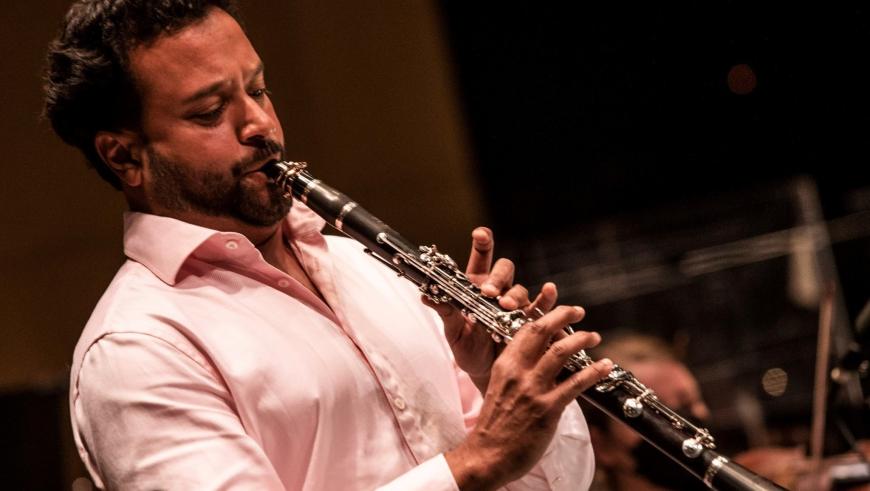
The festival’s final work of 2023 was commissioned as a tribute to Primack in her final season. Măcelaru leads the world premiere of Wild Geese, a work by Clyne that draws its inspiration from the eponymous poem by Mary Oliver. Wild Geese marks the first implementation of the “Augmented Orchestra,” a new creative exploration that combines the sounds of a live orchestra with computer-controlled processes, developed by Clyne in collaboration with audio engineer Jody Elff.
Festival tickets range from $30 to $80 for individual concerts and from $295 to $360 for full subscriptions. Many events are free and open to the public. Information is available online or by calling (831) 426-6966.
